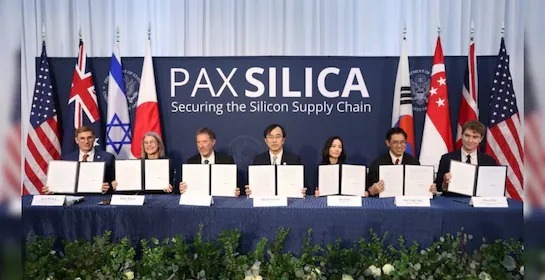P. Krishnamoorthy, J.@mdashIn both the Writ Appeals the same question arises for consideration and they were jointly heard. We heard all Counsel representing the Appellants and the Respondents in the two cases.
2. Writ Appeal No. 331 of 1991 is against the dismissal of O.N. No. 10749 of 1990 and the Petitioner is the Appellant Writ Appeal No. 479 of 1991 is by the Petitioner in O.P. No. 9762 of 1990 against the dismissal of that O.P.
3. The Appellant in Writ Appeal No. 331 of 1991 was appointed as a nursery teacher in a recognised school (Ambalamedu High School) run by the 1st Respondent F.A.C.T. She was working for various spells from 23ud September 1976 to 20th March 1985. From 1st June 1932 to 31st March 1984 she was working in a regular vacancy and during the other periods on leave vacancies. Her services were terminated on 31st March 1984 due to fall in division due to shortage of students. The 1st Respondent has invited applications for the post reserving the same exclusively for Scheduled Caste candidates. The Appellant is challenging the same on the ground that she has a preferential claim to that post under Rule 51A of Chapter XIV(A) of the Kerala Education Rules.
4. The main contention of the Respondents is that Chapter XIV(A) will apply only to aided recognised schools. The school run by the 1st Respondent is not an aided school but only a recognised school and as such the Appellant cannot claim the benefits conferred on teachers, under Chapter XIV(A) of the Kerala Education Rules.
5. The Appellant in Writ Appeal No. 479 of 1991 was a teacher in the U.P. School, Udyogamandal, run by the 1st Respondent--F.A.C.T. It is a recognised but unaided school. Vacancy of Headmaster arose in that school on 12th February, 1990. The management invited applications on 20th March 1990 and the 6th Respondent was appointed to the post of Headmaster on 3rd April 1990. According to the Appellant he is the only teacher qualified to be appointed as Headmaster and the 6th Respondent is not qualified. According to him, Rule 45B(1) of Chapter XIV(A) enjoins that a pass in Account Test (Lower) conducted by the Kerala Public Service Commission is an obligatory qualification for being appointed as Headmasters of Lower Primary and Upper Primary Schools. Admittedly, the 6th Respondent is not having the test qualification and accordingly he is entitled to be appointed as Headmaster. On this ground he challenged the appointment of the 6th Respondent.
6. Respondents, among other contentions, contended that the provisions of Chapter XIV(A), K.E.R. are not applicable to unaided schools even if they are recognised. It is their contention that it will apply only to aided recognised schools and that the Petitioner is not entitled to any relief in the O.P.
7. Both the Writ Petitions were dismissed by two learned Judges, holding that the provisions of Chapter XIV(A) of the Kerala Education Rules are not applicable to the respective Petitioners as the schools in which they were working are not aided schools. Thus, the only question to be decided is as to whether the provisions contained in Chapter XIV(A) of the K.E.R. will apply to unaided recognised schools.
8. Both the learned Single Judges have followed an earlier decision of this Court (by one of us, Bhat, J. as he then was) in O.P. No. 3669 of 1986, dated 2nd June. 1986. That Original Petition was filed by the 6th Respondent in Writ Appeal No. 479 of 1991 and it was concerning the school under the same management, namely the F.A.C.T. In that judgment, after considering "the various provisions in the Education Act and the Rules, it was held that the provisions of Chapter XIV(A) can be invoked only in the case of aided schools and as the school in question was admittedly an unaided school, the said provisions are not applicable. Accordingly the Original Petition was dismissed. The judgment in O.P. No. 3669 of 1986 was confirmed by a Division Bench in Writ Appeal No. 443 of 1986. Inspite of the judgment by the Division Bench, we heard all Counsel elaborately and after considering the matter we do not find any reason to take a different view from what this Court held in O.P. 3669 of 1986 as confirmed in Writ Appeal No. 443 of 1986.
9. The main argument of Counsel for the Appellants is based on the definition of private school in Section 2(7) of the Kerala Education Act which is to the following effect:
In this Act, unless the context otherwise requires:
* * *
(7) ''private school'' means an aided or recognised school;
On going through the provisions contained in various Chapters of the Kerala Education Rules, we find that certain Chapters are made applicable to departmental as well as aided schools. There are certain provisions, for e.g., the provisions of Chapter XXVI, which deal with scales of pay of aided school teachers only. There are certain other provisions in the rules which apply to all types, both aided and unaided. The heading to Chapter XIV(A) is Conditions t of Service of Aided School Teachers. In certain rules in that Chapter, instead of aided school the words ''private school'' are used. Rule 45B mentions the qualification of Headmasters of Lower Primary and Upper Primary Schools. In Rule 51A, preference is given to qualified teachers who are relieved as per Rule 49 or Rule 52, to future vacancies in schools under the same Educational Agency. In that Rule also the term used is only ''schools''. But there are certain rules, for e.g. Rule 1 itself which mentions ''private schools''. The argument of Counsel for the Appellants is that certain provisions contained in Chapter XIV(A) indicate that those provisions will apply to teachers of private schools, as, under the definition, ''private school'' means an aided or recognised school. But on going through the definition and the rules we are of the opinion that the term ''private school'' used m Chapter XIV(A) has to be read in the contest in which it is used. The heading of the Chapter itself is that it provides for conditions of service in regard to teachers in aided schools. Moreover, Section 12 of the Education Act makes a specific provision that the conditions of service of teachers in aided schools, including conditions relating to pay, pension, Provident Fund Insurance and age of retirement, shall be such as may be prescribed by the Government. Government is specifically given power u/s 12 to make rules regarding the conditions of service of aided school teachers. We do not find any such provision in the Act so far as unaided schools are concerned, though there are certain general Rule making powers u/s 36 of the Act. In 1990, Chapter XIV(AA) was introduced by G.O. (P) No. 54/90/G.Edn. Chapter XIV(AA) specifically deals with conditions of service of teaching and non-teaching staff of recognised unaided schools. The insertion of Chapter XIV(AA) also gives an indication that Chapter XIV(A) was not intended to apply to unaided recognised schools. From the mere use of the term ''private school'' in certain rules in Chapter XIV(A), it cannot be said that those rules will apply, to unaided schools also because the definition itself is preceded by the words ''unless the context otherwise'' requires. The context in which the words ''private school'' are used has to be taken into account. On the setting of Chapter XIV(A) in the light at the other Section and rules which we have mentioned above, we have no doubt that the term ''private school'' used in certain rules in that Chapter is meant to apply only to aided schools and not to unaided schools. ''Privatev School'' means an aided school also. Thus, we are clearly of the opinion that provisions of Chapter XIV(A) are not applicable to the schools in question run by the 1st Respondent and we are in complete agreement with the view taken in O.P. No. 3669 of 1986 as confirmed in Writ Appeal No. 443 of 1986.
10. In Writ Appeal No. 479 of 1991 Counsel for the Appellant contended that even under Chapter XIV(AA) the 6th Respondent is not qualified as he has no test qualification which is an obligatory qualification for the teaching staff in recognised unaided schools. This ground was not taken in the O.P. Even assuming that Headmaster also will be included within the term ''teaching staff'', we find that under the first proviso to Rule 1 of Chapter XIV(AA), unqualified persons are given two year''s time to acquire such qualification. Thus, it cannot be said that the 6th Respondent was not qualified at the time when he was appointed Headmaster.
11. In view of what is stated above, we do not find any reason to interfer with the judgments of the learned Single Judges and accordingly the Writ Appeals are dismissed.

